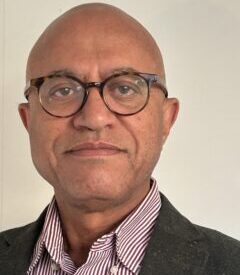I attended 8-10 of May, 2019, South African – Sweden University Forum (SASUF) 2ndconference in Stellenbosch. In this conference I met two Ethiopians, one living and working in Sweden and the other one in South Africa. While we were discussing Ethiopia and South Africa, one of them, a civil engineer and professor in South Africa was talking about the bad sewerage system in Ethiopia. He said still we don’t have a central sewerage system in Addis Abeba that connects to the private houses and properties.
After talking for a while about the sewerage system, when we changed topic to talk about something else, he turned to me and asked me if I knew Professor Neville Alexander. I said yes he was a well known person and I told him I listened to him in 2008 or 2009 at the then Nelson Mandela Metropolitan University and I just thanked him after the lecture. I told my new acquaintance I heard the Professor died some years back. He was a bit surprised that I said I meet the Professor some years back and listened to him.
My new acquaintance asked me if I knew Professor Alexander´s Ethiopian connection. I was surprised and said no. He told me there are biographs of the Professor and an interview he gave to BBC on his background. His grandmother was an Ethiopian slave who was freed by the British navy from a boat that was on its way to an Arabian country.
That same evening I went to the BBC homepage and found the link where he gave an interview about his maternal grandmother, an Oromo woman from Ethiopia (https://www.bbc.com/news/world-africa-14357121). I also read about him on Wikipedia (https://en.wikipedia.org/wiki/Neville_Alexander). The next day when I talked to colleagues from South Africa, I understood many of them knew about him and his work. A professor from Nelson Mandela University gave me a book of tribute with a text from his colleagues and Neville Alexander himself. From this tribute and texts from him I learned that, he is a literary giant, anti- apartheid fighter, activist and an intellectual of his time.
He was on Robin Island for ten years (1964-1974) with Nelson Mandela and the other anti-apartheid fighters. During his stay on Robin Island he was the cause for turning the prison in to a “university”. As an already well educated person before his prison terms, he encouraged both the illiterate prisoners to read and write and his colleagues for further studies.
When I read more about him, I also understood his struggle both for diversity and unity of South Africa. He dealt with the nationality question and with rights of minorities. He worked for minorities´ right to start their education in their own mother tongue and then in the later stage to start using the languages that are used nationally (Afrikans) and internationally (English).
While attempting to give voice for the minorities, he was also critical to the post-apartheid South Africa´s still using the racial divisions Black, Coloured, Indian and White. He is critical to dividing people on the base of the colour of their skin. He was also critical to the present day South Africa for economic and social injustice that left the poor in the country in the same living standard before the fall of apartheid.
As I mentioned earlier, he is a literary giant of his time and if I am going to go deep in to his work, it needs much time to read most of his work and to try to summarize his main areas of focus. I will keep that for the future. But before I finish this short introduction, I will quote his view on identities in South Africa, that could equally apply for his grandmother´s home land, Ethiopia, “We have to insist that we are all South Africans and that those subnational identities that do not undermine our national unity can and should be accepted as consonants with the democratic project. Such subnational identities would include those based on gender, language, region, religion among others, …” (In Enough is a feast, A tribute to Dr. Neville Alexander, 22 October 1936-27 August 2012, p.93).
